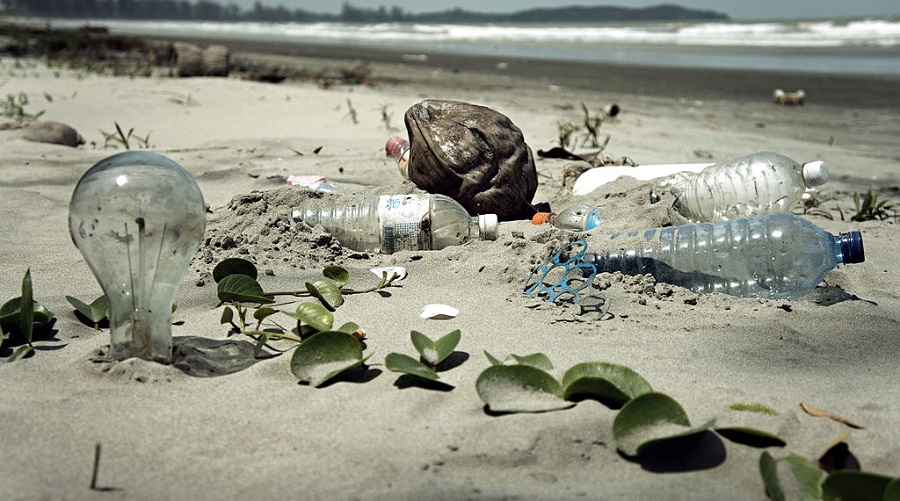
Plastic pollution in Malaysia. Image by epSos.de, Wikimedia Commons.
The Minderoo Foundation, one of the Sea Around Us partners, announced that it will allocate $300 million to its recently launched Sea The Future initiative, a project whose goal is to push for a global, market-driven intervention to reduce and stop the production of plastics.
According to Minderoo data, over 250 million tonnes of valuable polymer – worth at least a $1,000 per tonne recycled- are discarded annually. Much of this plastic ends up in the ocean and affects everything in it, from the chemistry of the water to the survival of a number of marine animals. At the same time, environmental and socioeconomic damages caused by plastic waste add up to $2.2 trillion each year.
Sea The Future, thus, is presented as a solution for such a waste of reusable materials and money. Spearheaded by Minderoo’s chair Andrew Forrest, the proposal asks manufacturers to make a voluntary financial contribution for each unit of new fossil fuel-based plastic produced.
According to the philanthropist, a contribution of about $500 per tonne would encourage resin producers to choose recycled plastic over fossil fuel as their raw material and promote a circular plastics economy.
“By mobilising new technology to increase recycling rates, plastic flows to the ocean and the broader environment would slow, and hopefully cease altogether. A circular plastics economy would also significantly reduce carbon emissions created through new plastic production,” Forrest wrote in an article published in The Conversation.
Based on research conducted in support of the initiative, Forrest believes that the estimated $20 billion per year raised through Sea The Future could be used to help establish recycling infrastructure, aid industry transition and remediate the environment.
To learn more about the proposal, watch this TED conversation.


